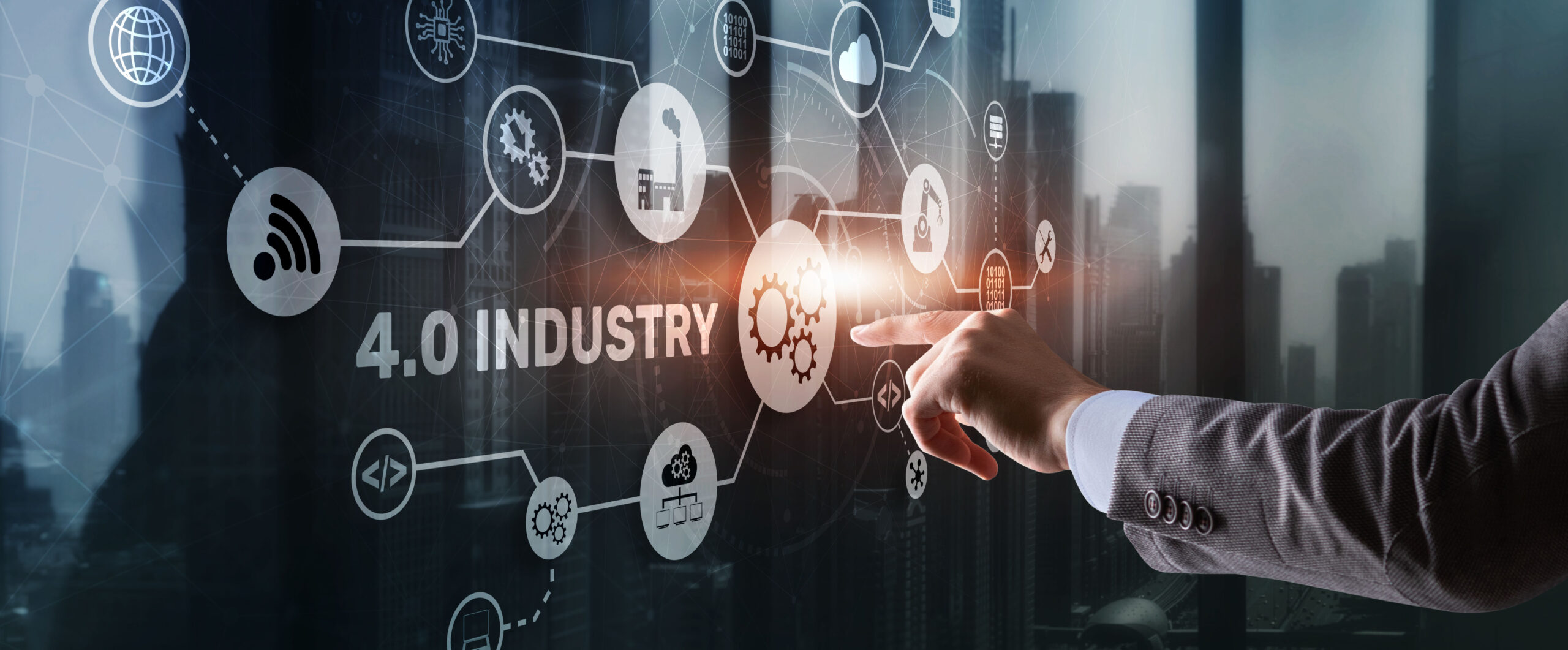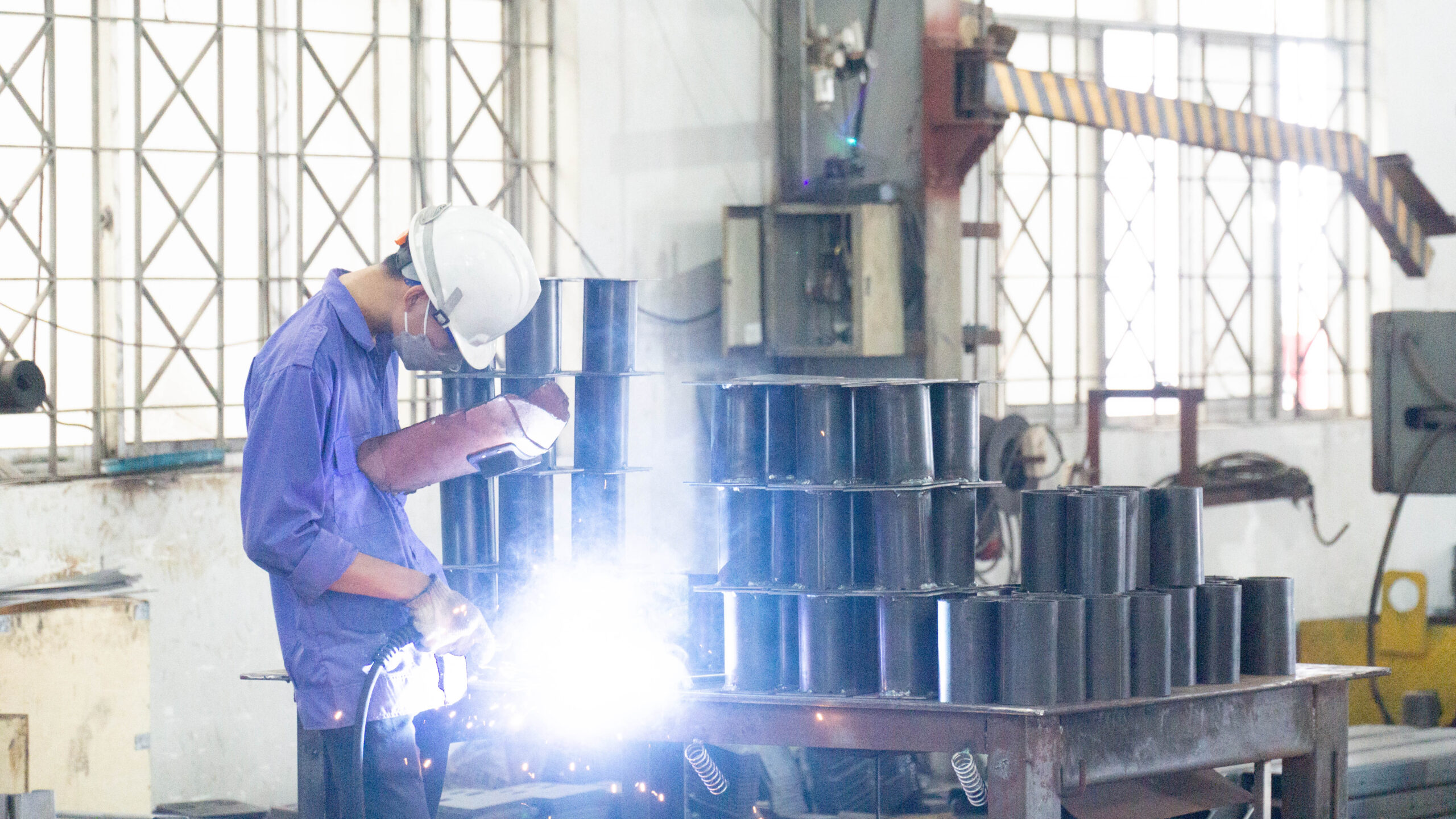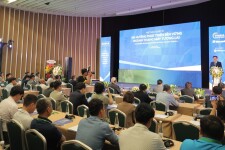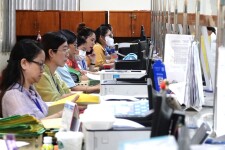The 4th Industrial Revolution (Industry 4.0) has profoundly changed production methods in the global economy. Robots gradually replace humans, not only in the "muscular" part but also in logical thinking. This creates a crisis in which humanity is forced to face the truth: Useless crisis!
That may not be what countries care about when the shift from labor-intensive to automation, machines gradually replace humans. Like the story of the Boiling frog syndrome, the Fourth Industrial Revolution has been and has smoldered, like an undercurrent on the ocean floor. All of us, like it or not, have joined the human spiral in which technological advancements are the driving force.
Although it was not until 2011 that the concept of Industry 4.0 was introduced by German scientists when implementing a project for the Government, but in fact it has been quietly taking place since the previous decades.

The inevitable trend of the near future for all fields
Repetitive workers, mainly in manufacturing, are the first to be directly affected by automation, with the auto industry taking the biggest hit. Since 1980, the number of manufacturing workers in the US has fallen by a third, to about 13 million, while output has doubled.
Global e-commerce leader Amazon has 30,000 robots performing operations in its warehouses around the world. In 2012, the company acquired robot developer and maker Kiva System, now Amazon Robotics, for $755 million. This has created “bots” that have replaced a large number of personnel working in warehousing and dispatching of bills of lading.
A report by Nielsen (a global advertising and market research company) says: 30% of jobs in the UK could be threatened by advances in artificial intelligence (AI) and forecasts that by 2030, 38% of jobs in the US are at risk of obsolescence.
McKinsey (a global management consulting firm) has researched to evaluate modern technologies proven to automate 45% of human activities in 60% of existing industries.
If in previous revolutions, workers could switch from one job to another, but by Industry 4.0, such labor mobility will decrease sharply or even disappear. For jobs that are repetitive and programmable, robots can completely replace humans. This puts pressure on people in the future to have the ability to learn to reach high levels that machines cannot do.
“The illiterate of the 21st century is not one who cannot read or write, but one who cannot learn, refuses to learn and refuses to relearn”(*). That's the cause of the superfluous crisis – the real challenge the workforce will face.
This question is not only for world economic strategists and policymakers, heads of state, but for all of us.
Industry 4.0 is mainly driven by four core factors: high-speed Internet, artificial intelligence (AI) and automation, using big data analytics and cloud technology. Of these four technologies, AI and automation are expected to have the most significant impact on employment figures in the global workforce.
With the rapid development of science and technology, the traditional production methods so far, even if they are modern today, may be outdated tomorrow. There will be professions that gradually disappear or change in "quality". Machines are gradually taking the place of humans. At that time, inequality is becoming larger and larger, especially in the ability to disrupt the structure of the labor market. Knowledge will become even more important in future production processes. The prospect of a deeply fragmented labor market: Low Skill/Low Pay and High Skill/High Salary is not far away.

The inevitable trend of the near future for all fields
In the near future, the number of full-time employees in the manufacturing and agricultural sectors will “progress backwards”. Robots can also more efficiently and safely handle tasks in industrial plants and the elevator industry is certainly no exception.
McKinsey released a report showing that around a fifth of the global workforce will be impacted by the adoption of AI and automation, with the most significant impact in developed countries such as the UK, Germany and the US. In 2022, 50% of companies surveyed believe automation will reduce their full-time employees, and in just under 10 years, robots will replace 800 million workers worldwide.
“Perhaps in the 21st century, populist revolts will be waged not against an economic elite that exploits people, but against an economic elite that no longer needs the people.” .(**)
That is when people are faced with being useless in the global production chain. An obsession of workers in the knowledge economy.
Reports of the Ministry of Labour, Invalids and Social Affairs have shown a reality in Vietnam. That is, Industry 4.0 is creating double disruptions to the labor market and labor structure by requiring enhanced new skill requirements.
In the report on readiness for future production published by the World Economic Forum in 2021, Vietnam belongs to the group of countries that are not ready to receive Industry 4.0, ranking only 70/100 in terms of resources. human resources and 81/100 for skilled labor. Compared with other countries in Southeast Asia, Vietnam is behind Malaysia, Thailand, Philippines...and on par with Cambodia.
The International Labor Organization (ILO) also assessed that Vietnam will be in the group of countries most affected by Industry 4.0, facing the challenge of improving skills and changing careers in the future. Labor-intensive occupations will transform as a matter of course or even jobs will disappear altogether.
The above "sad" figures force us to look back at the inadequacies in training, training standardization and training orientation for the labor market, especially for production workers in industries.

The elevator industry will move from being labor intensive (using a lot of simple labor) to using artificial intelligence and robotics
Firstly, it is necessary to proactively anticipate the trends and requirements of the labor market. The problem of human resource development, especially high-quality human resources in the current context, has added new and extremely difficult criteria and conditions, requiring a comprehensive innovation in training. Training institutions cannot still use the old method, lack of interaction and lack of practicality of the new production model for training. This will lead to a huge risk of lag and waste.
Secondly, it is necessary to strengthen forecasting of future human market needs. This is a content that needs special attention, because the Fourth Industrial Revolution will have a great impact on the structure of the economy, creating the possibility of decline, even traditional occupations may disappear. Meanwhile, many new professions will appear.
Thirdly, it is necessary to combine 3 "houses": School - Scientist - Entrepreneur in human resource training for Industry 4.0. Currently, mainly the business side has a need to connect with the school - scientists. Meanwhile, in the opposite direction, the public vocational education system has not shown much demand in this relationship. That is something that will need to be taken care of.
In the inevitable trend, Vietnam's elevator industry will also change drastically, requiring less personnel in production or service provision. Automation systems in production will replace assembly workers. Passive maintenance will switch to active maintenance by technicians thousands of kilometers away. Global production lines and factories will be managed via Blockchain…
Those will be the possibilities in the future that humans can predict with relative accuracy. But if we do not lay the knowledge foundation and training plan right now, we will always be the last in the global race.
Fear and be displaced or improve your skills to excel in a VUCA world. It is the right of each of us.
(*) Alvin Toffler, World's Most Famous Futurist
(**) Excerpt from 21 lessons for the 21st century, authored by Professor Yuval Noah Harari, Hebrew University, Jerusalem





